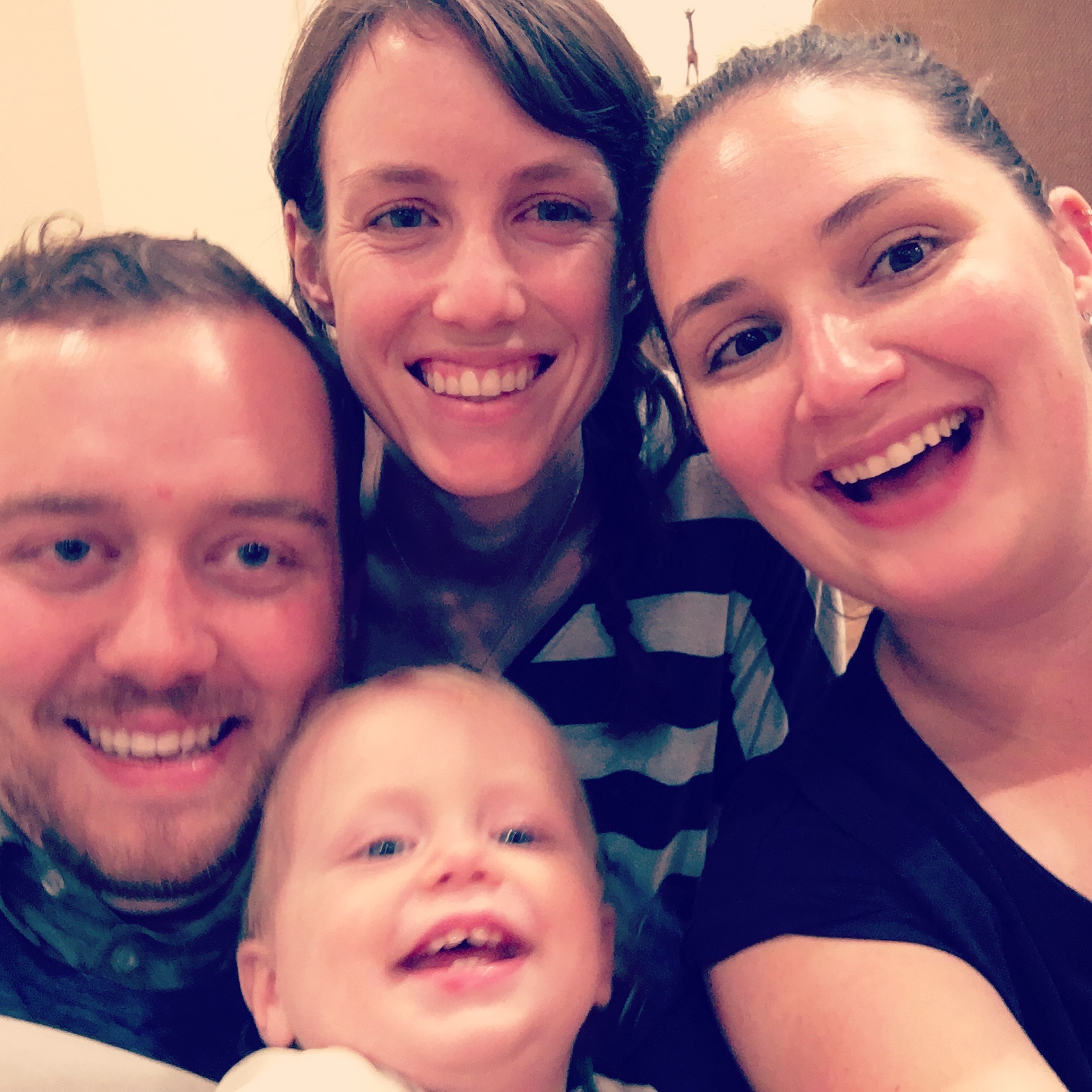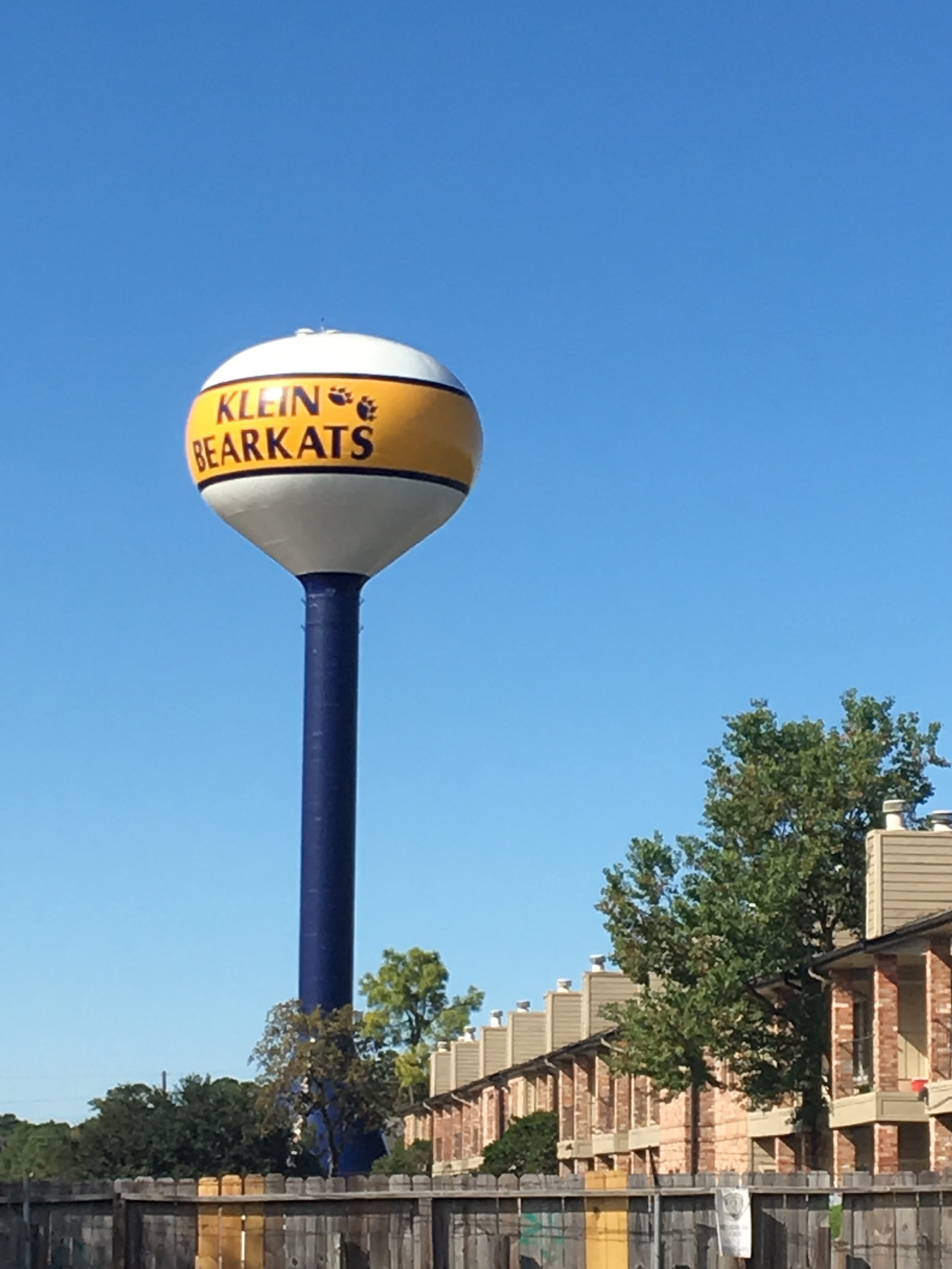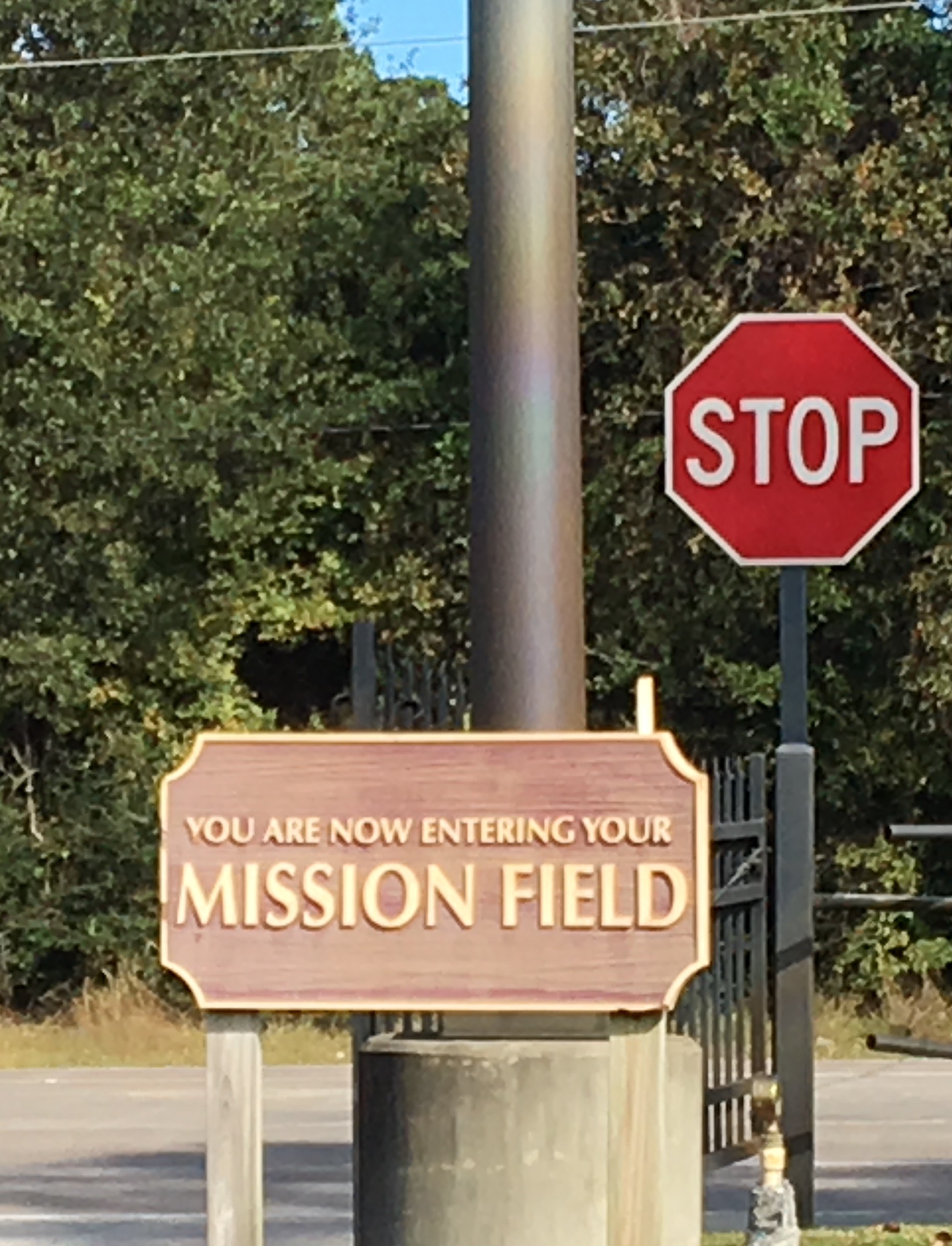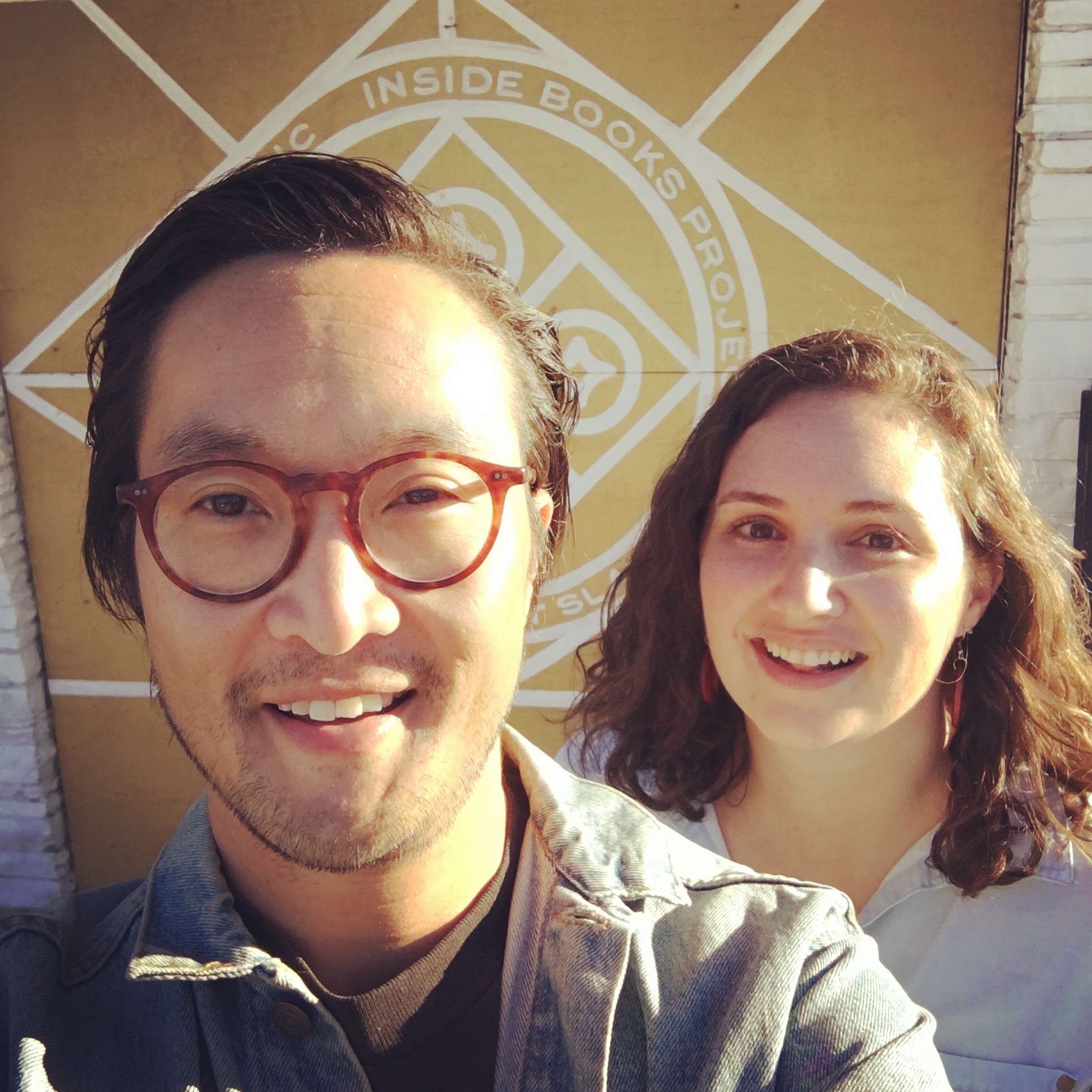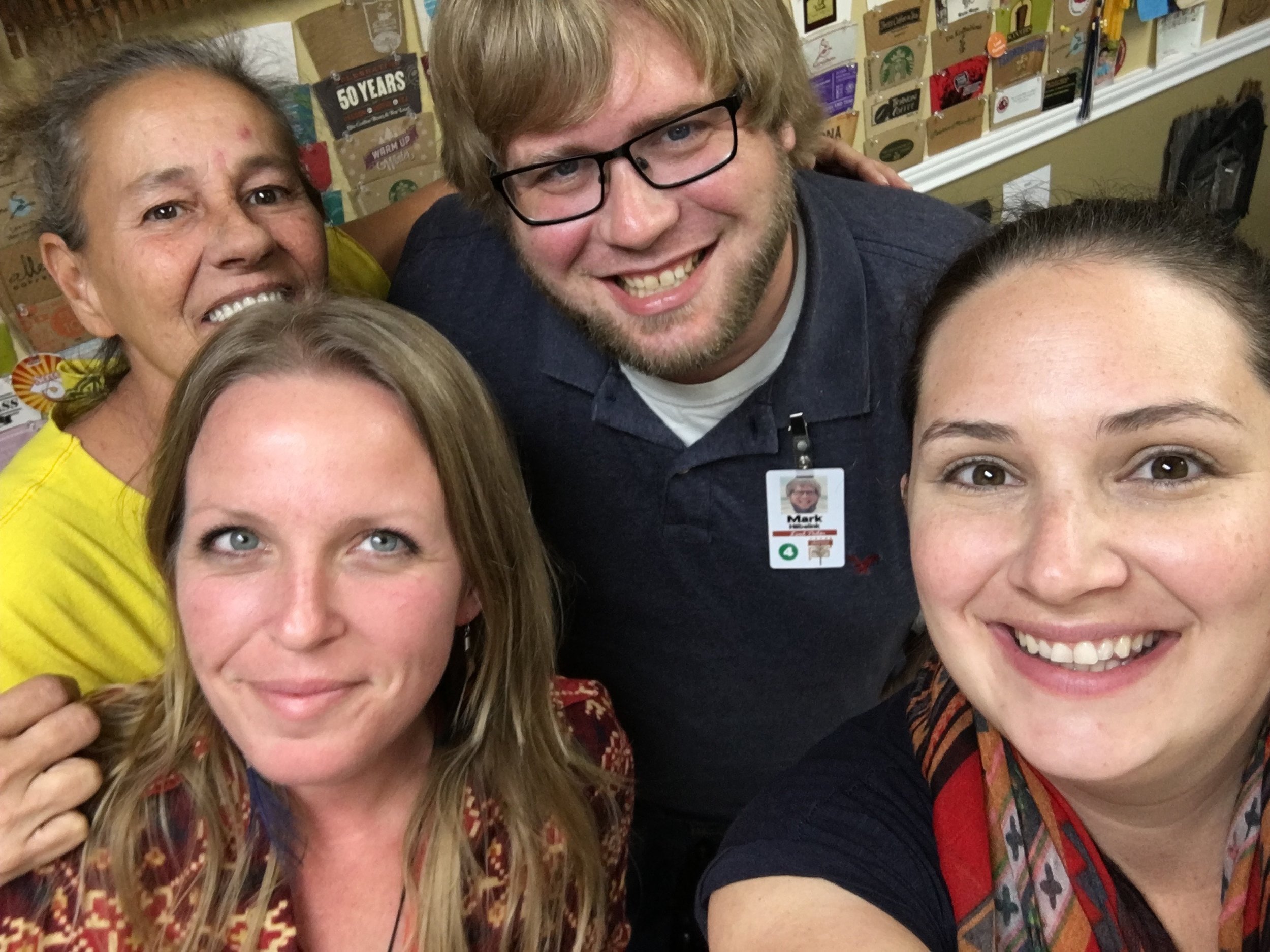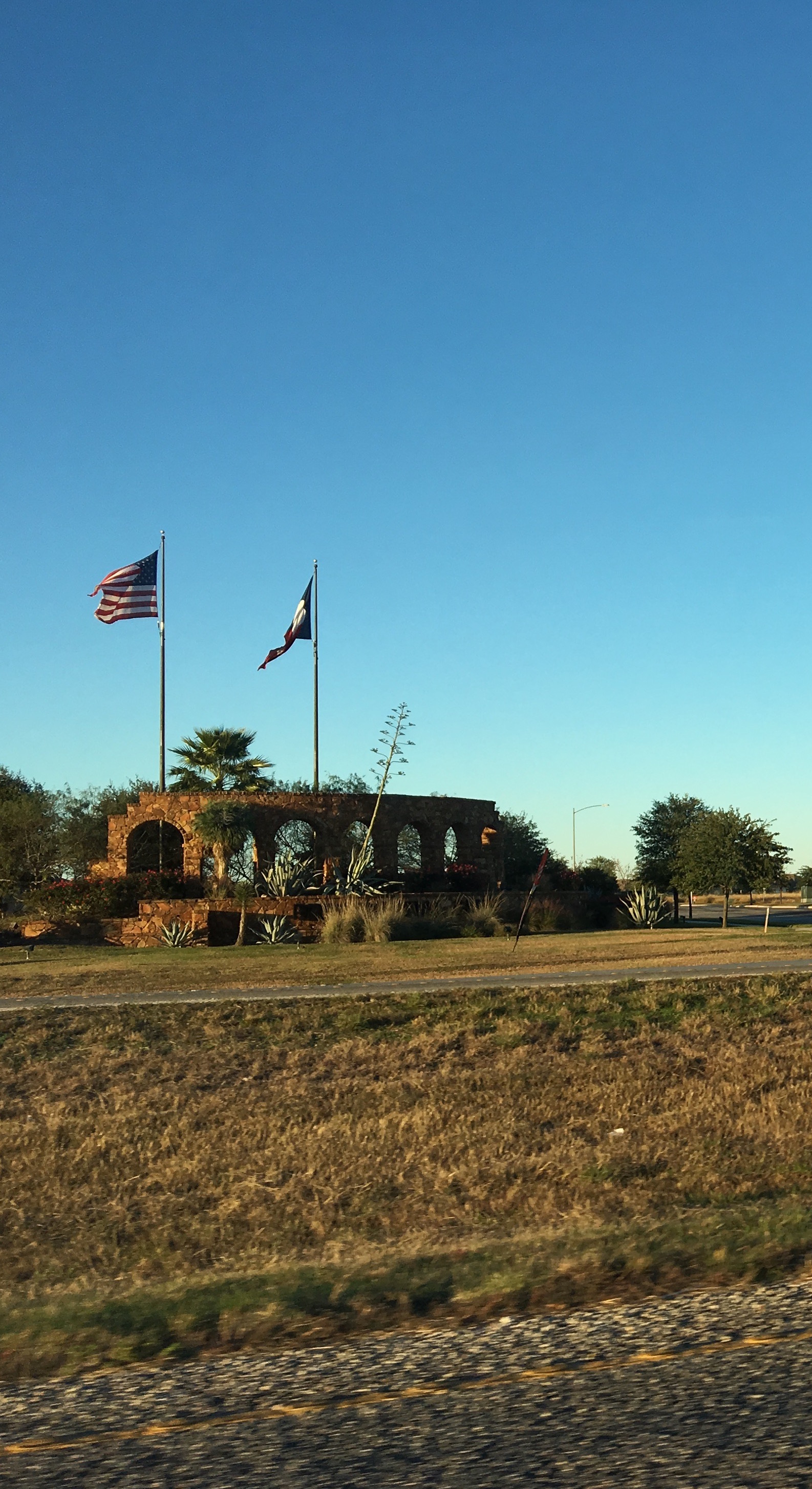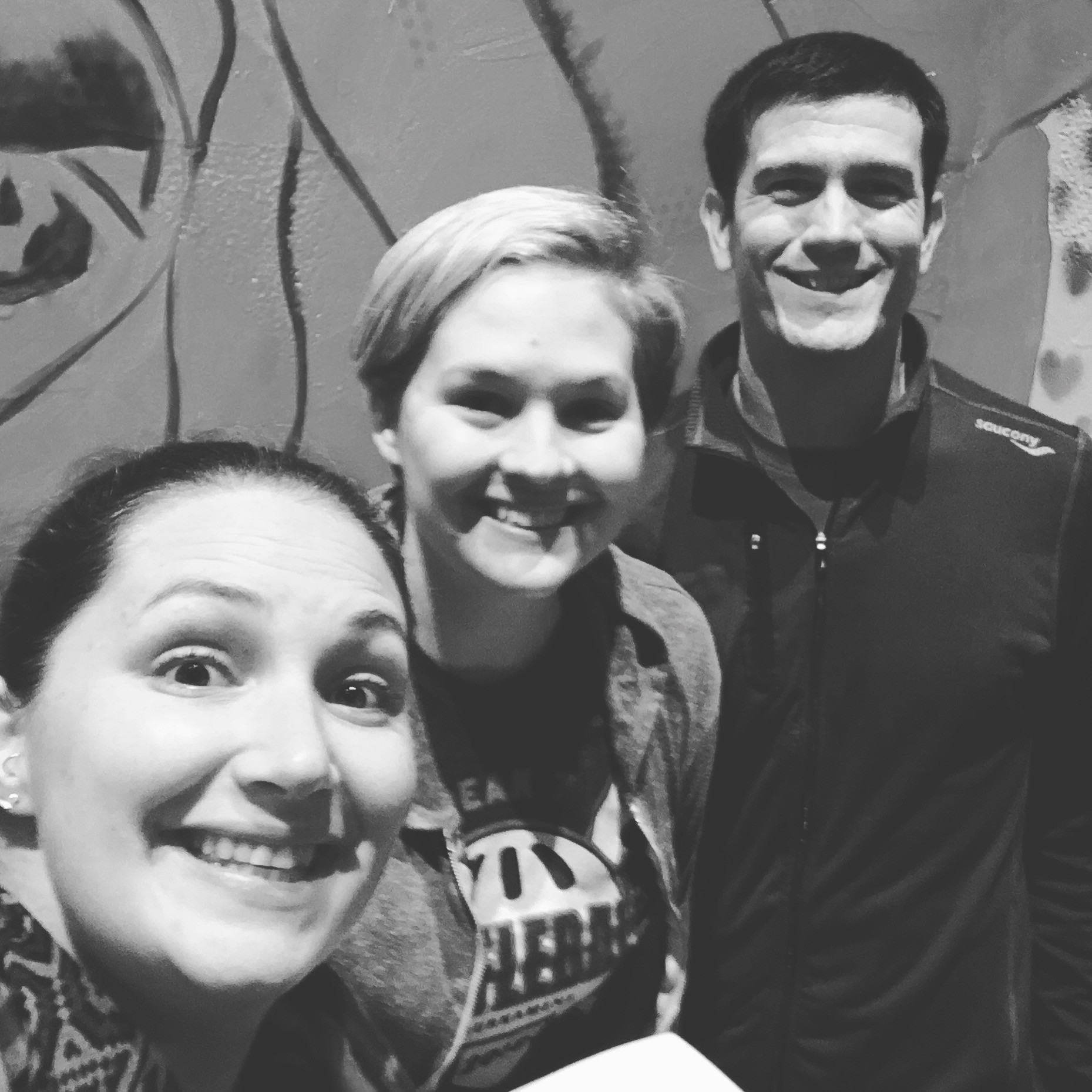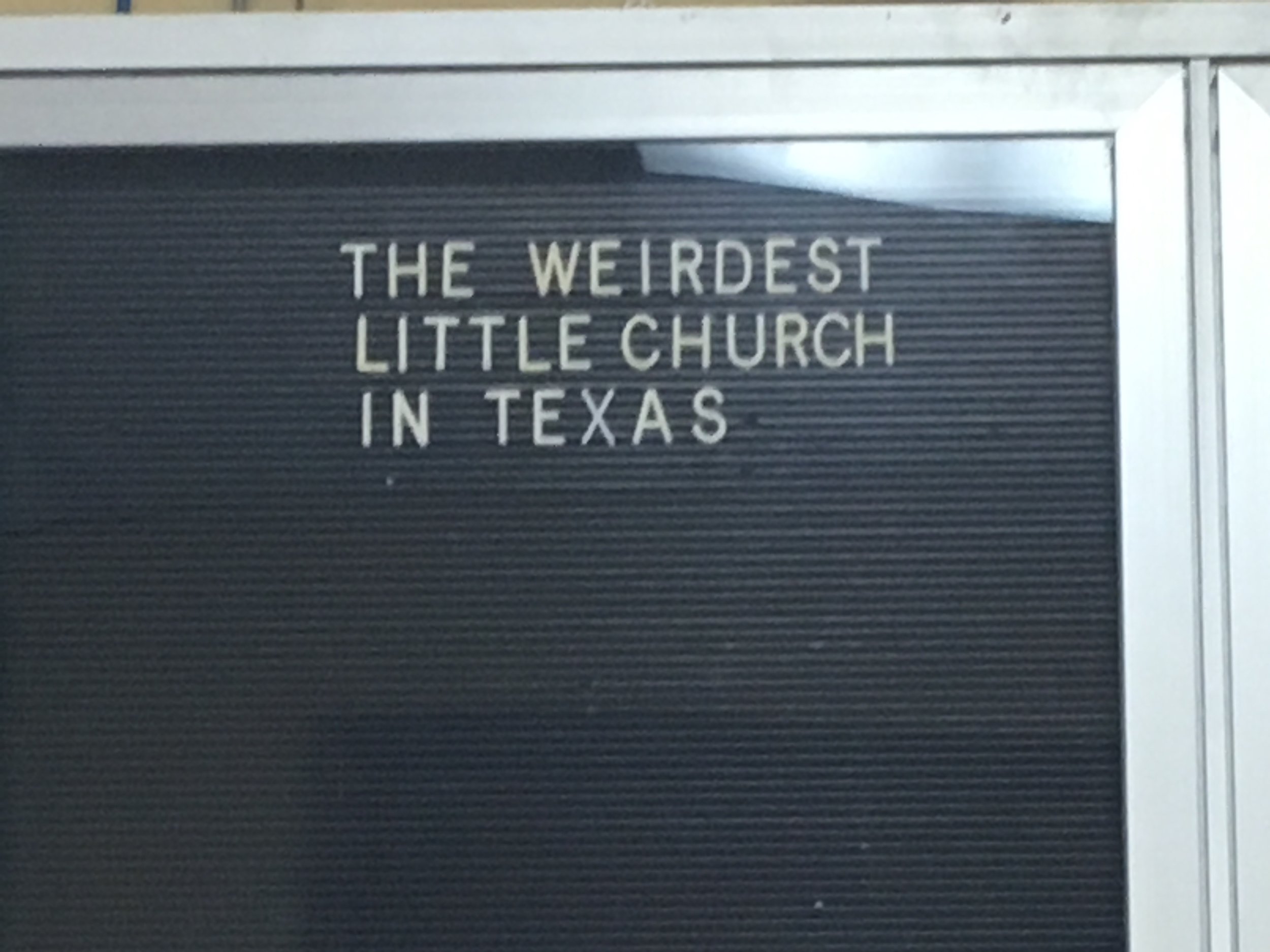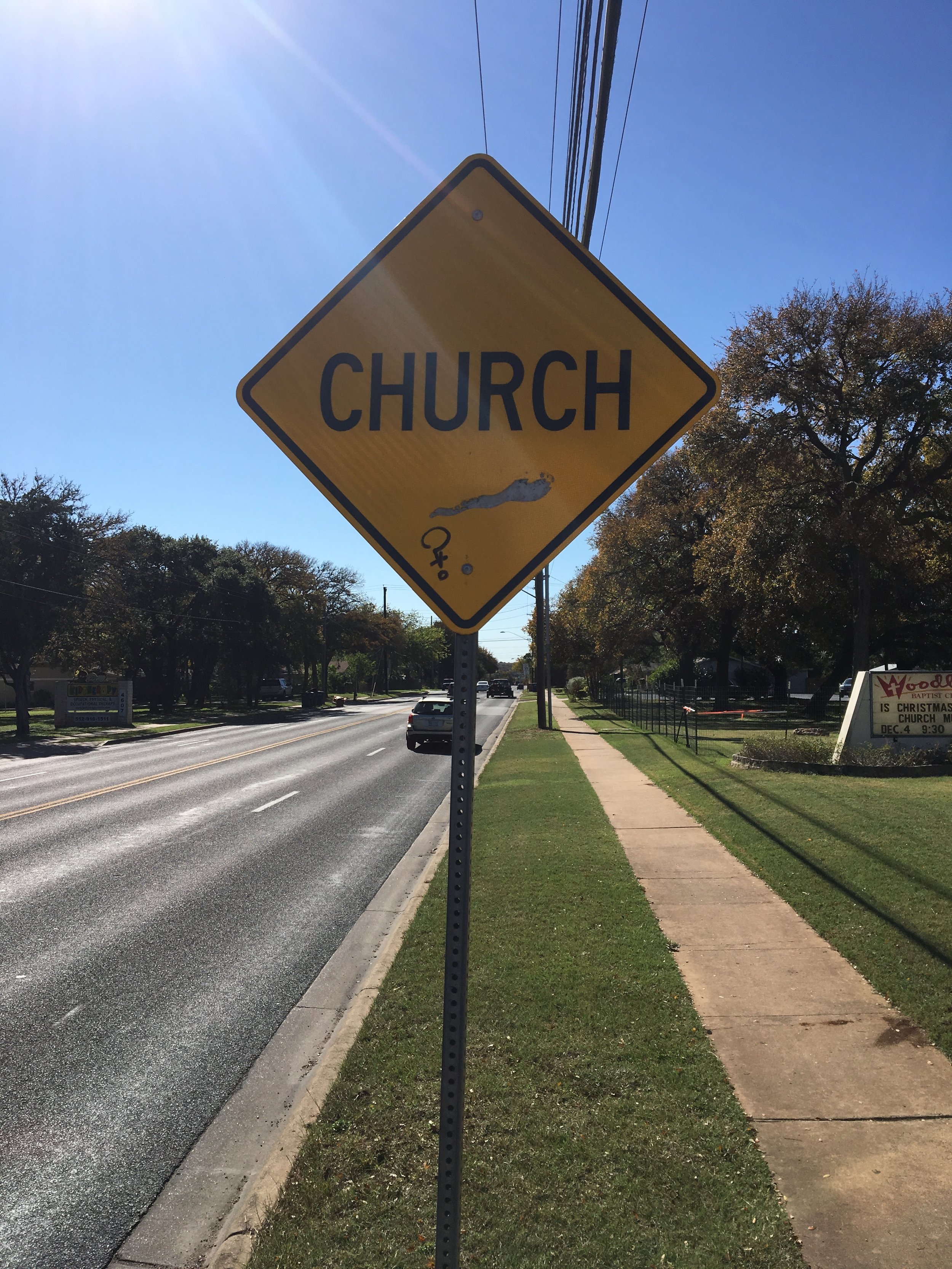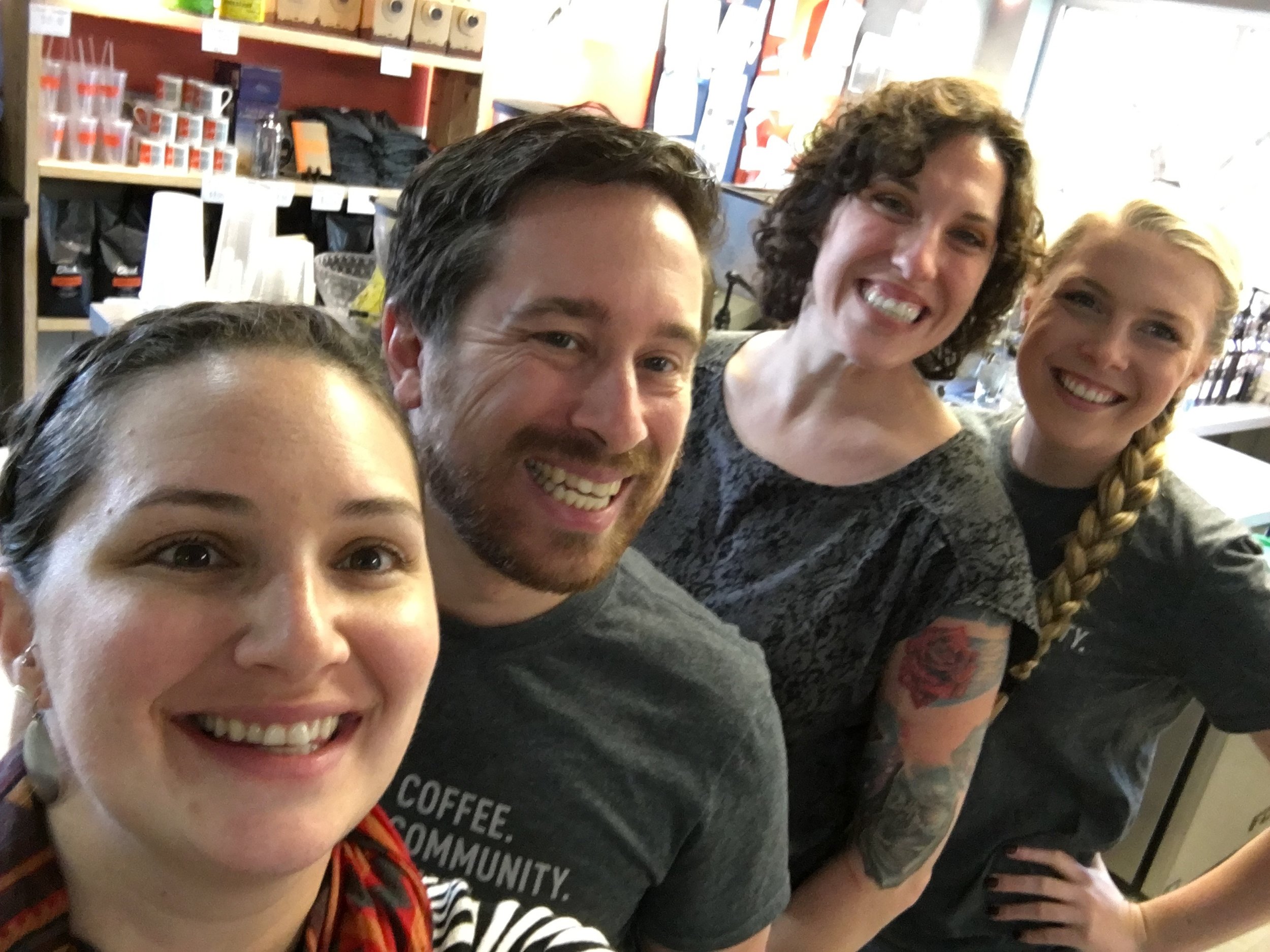
10 Things I Learned Listening in Texas (Plus Photos)
10 things I learned in Texas and some photos too!
My time in Texas was amazing. I had so much fun getting to see my friends, family, and collecting stories. It was also amazing to spend time with people that are bringing hope and more of the Kingdom of God to the state of Texas. Here are 10 things that I learned about the beautiful state of Texas. Plus some photos from my trip.
More stories to come... Stay tuned!
- College football is king: Everyone has a kingdom they align with
- Flags are not just to fly they are a statement … as well as decor
- Anything can be made in the shape of Texas including Landscaping
- “Everything's bigger in Texas” is not just a saying it’s a way of life
- “Don't Mess with Texas” is used on traffic sign
- Topo Chico is the best Mineral Water in all the land
- Water towers are advertising
- Churches have neon signs
- Breakfast Tacos makes my heart sing
- There is so much that I didn't see that I wish I could have
Listening in Santa Cruz - Sept. 13, 2016 (Part2)
Ryan is not gripped on how many people will show up to play. The point is building Christ anointed relationships that produce the fruits of the Spirit. Relationships take time and commitment. Some say that time is money but I say time is community.
In my second year of seminary, I wrote a paper titled, “The Eucharist’s Super Power.” The main thesis of the paper was that our culture has taken the equalizing power out of the Eucharist. When a central point of the Eucharist is to level the playing field and bring all of God’s people together through Christ. Pastor Ryan Althaus may not have bread and wine at every event, but he is bulldozing the cultural boundaries humanity creates through the power and theology of play. As he said in our interview, “Life is far too important to be taken seriously… We need to embrace the mess-ups and the messiness.” What better way to do so than through play!
"Ducks and chickens waddling to their specific rhythms, while wild bunnies use their ninja skills to grab a quick snack."
Ryan began with The Homeless Garden Project (HGP) as their Development Director, but realized the job was taking him away from interacting with the trainees of the project. After a year working for HGP he quit to volunteer and connect with the homeless individuals getting job training skills. Ryan’s desire to cultivate real, lasting, hopeful relationships with the homeless community lead to his choice to live simply and participate more. By volunteering he can now focus on Yoga Tuesdays and other recreational activities.
Having the chance to participate in the yoga class, I was able to see how activity together cultivates opportunity to connect. Our conversation fluctuated from themes of life and death to everyday choices. The focus was not on how far you can stretch but accepting your limits and listening to what your body is saying. Through an hour of play we were able to encourage each other, laugh, stretch, and organically talk about God’s love. Nothing was forced or contrite. It was natural and easy. We all were able to leave feeling refreshed and ready to take on the rest of the day.
"His wild hair, pierced eyebrow, and well-loved visor does not scream pastor. The warmth and care in his voice towards his friends in the garden community whispered it."
During our interview Ryan quoted Plato saying, “In an hour of play we learn more than in a lifetime of conversation.” Than let’s play! Religious traditions have a good purpose, but when they get in the way of loving the Other, we loose something fundamental to Christ’s call. Ryan seeks to foster dignifying, equal relationship through play; whether through yoga, running, or kayaking.
What I love is that Ryan’s focus is not some mind-blowing-new-crazy idea. It is simple. Back-to-basics. The focus of this ministry is showing those that feel outcast know they are loved. Through play there is no outsider, it is a level playing field. All are experiencing God’s love. Love your neighbor as you love yourself is about more than just being nice to someone; it is about loving others with dignity. Dignity is at the center of Ryan’s heart and action.
"Would I belong or would they assume I'm an imposter? Yet, all this was gone. Simple. Grounding. Peaceful. Yoga."
Ryan is not gripped on how many people will show up to play. The point is building Christ anointed relationships that produce the fruits of the Spirit. Relationships take time and commitment. Some say that time is money but I say time is community.
The hardest part of this ministry is to help those who do not see the validity of this work, start to understand its importance. But how do you quantify an experience? How do you place the old set of standards on something that is so old that it is new? How do you put new wine in old wineskins? This is the task that Ryan takes on as he applies for grants to continue the work that has been placed on his heart.
“How many people feel the same way about church? ‘Will I belong? Am I enough the way I am to be accepted here? What do all those words actually mean? Will I belong?’”
The desire for this ministry is to continue to find creative, dignity-filled actives to do together. Ryan’s hope is to continue the work that is already present and consistently show love to those that would normally feel outcast. Through the power of play Ryan facilitates equalizing, Eucharistic-like-moments that show people Christ’s love. Therefore, spreading the power of the Gospel and bringing more of heaven into this world.
Make sure to check out Sweaty Sheep and don't forget to 'like' them on Facebook. The podcast with Ryan, sharing more of his story, coming in October through The Seattle School's podcast channel.
So what are you doing after graduating? (Part 3)
"Following the way of Christ may not look the way it did 30 years ago, but God is still actively pursuing us."
Listening
Here it is where the fun begins: Everyone listens to God differently. The three common ways we hear from God are through the Scriptures, the Holy Spirit and the Church. Being that I much more of an active listener than a contemplative listener I have decided to go on an adventure to hear and gather stories from the Chruch.
Throughout the last year, God has been slowly giving me a vision of how I could choose to listen for God’s voice over this next year. I have embraced this vision with excitement and nerves. I truly believe that God has something to reveal to me through the adventure that is outlined below, yet I have never embarked on such a journey. The newness feels risky and unknown. However, I am excited to see what this risky, unknown adventure has for me.
I am going to be collecting stories from church planters, practitioners, pastors, social entrepreneurs, and theologians throughout the United States that are rethinking the way we “do” church. My desire is that these stories will provide hope to the Church that has lost a sense of what it means to belong to each other.
There seems to be a lot of fear in the Church today from those that are use to the Church looking a specific way, with a certain way of being. The fear is then heightened by the fact the church buildings are no longer the center of the town or community and there are less and less attending on Sunday mornings.
I believe that God is not done with the Church. There are amazing experiments, creative endeavors, and risky ideas that, I believe, are commissioned by the Holy Spirit and anointed by Christ for the Glory of God. These stories of hope seem to be hidden. My hope and goal is to help tell the stories of God’s creative movement in the United States. I hope to help the church understand that the Church is bigger than a building or a tradition. God is not done with us.
The truth is that God is not worried about the church building being filled every Sunday or not. God is more concerned with Creation becoming reconciled with its Creator. Following the way of Christ may not look the way it did 30 years ago, but God is still actively pursuing us.
This project is called The Listening in Place Project. I will be blogging and making videos about the people, projects, churches, and stories I encounter. I am also partnering with The Seattle School of Theology & Psychology to produce 10 podcasts for their podcast channel. The Listening in Place Podcast will be posted monthly starting in October 2016. (More information on how to subscribe is to come.)
I look forward to gathering these stories of hope our Church. I am excited and nervous to intentionally listening for God’s leading in my life as I embark on this crazy journey.
God's Provision
This is the part that is risky. Trusting that this idea is not just something I came up with one night, but that it is truly what God wants me to do over this next year. That means opening myself up to all of this falling apart.
I am thankful to already have the support of The Seattle School to help make this vision a reality. I now must be even more vulnerable and ask for my community to come along side me to support me financially this year. This feels strange to me. Yet, I strongly believe that God has set me on this adventure and that my community will come around to support me. Thank you in advance for your support; whether it is through prayer or through donations.
To execute this project well I will need around $10,000. Please prayerfully consider how you can help be apart of The Listening in Place Project. Below is a breakdown of the three different levels of sponsors that are available.
Connecting Sponsor $1000+
- Suggest 3 people to interview and you are guaranteed 1 will be interviewed.[5]
- The opportunity to have Cassie come and speak to your organization, church, or institution about her journey.
- Logo on Cassie’s Website with link if requested.
Cohort Sponsor $201 - $999
- Logo on Cassie’s Website.
Community Sponsor $1 - $200
- Name on Cassie’s Website.
Become a Sponsor of The Listening in Place Project!
This is what I am going to be doing this next year.
It is risky.
It is not a usual progression after seminary. And it is what God has put on my heart to do. I will faithfully step out and try, knowing that God’s vision for my life is bigger than I could every understand. I trust that God will provide through my community to share the stories of others working to bring about more of God’s Kingdom about in new and creative ways.
I hope you choose to participate with me on this journey. I will be posting blogs and video as often as I can and I will be posting the links to the podcast when they are released on The Seattle School’s channel.
Please pray for:
- The financial side of things to go smoothly
- Schedules of those I wish to interview to align
- Safety as I travel throughout the U.S. over this next year
Blessings Friends!
Cassie
__________________________________________________________
[5]The Seattle School stewards the podcast content. They edit and produce the final content.
So what are you doing after graduating? (Part 2)
"Sabbath is about four key themes: rest, delight, listening, and God's provision."
So you might be thinking, “That’s great Cassie, but what are you actually doing after graduation?”
I am on Sabbatical!
I am exhausted and I need some time to process all that has happened over the last four years. I need time to let everything I have learned to marinate a bit more. I need time to rest and recover before diving back into fulltime ministry. And I truly believe that God has something specific for me to listen for this year.
Walter Brueggemann talks about Sabbath as Christianity’s forgotten inheritance, in his book Sabbath as Resistance.[1] Meaning, that Christianity has let go of the commandment that actually orients our lives in right order with God. Within the Christian church, specifically the North American and white church that I am familiar with, the primary emphasis is focused on the Lord’s Day. The celebration of Christ’s resurrection is vitally important, yet should not replace Sabbath. Each holds very different foci and should be held with equal standing.
The Jewish theologian, Abraham Joshua Heschel describes the fullness of Sabbath as a reorientation of life, in his book The Sabbath.[2] This reorientation encourages God’s people to shift the way they think about how they live every-day-life. Sabbath is what reminds God’s people who they are and who they belong to. It also realigns God’s people to rely on God and not themselves. You prepare for Sabbath by redesigning your rhythms to prioritize God over all other things. When Sabbath is intentionally prepared for well and actually practiced as rest, remembering and delight are the results.[3]
The question that stirs up for me is – what does Christian Sabbath actually look like? I think the answer is complicated and is possibly a different blog post. Nonetheless, I am going to take a shot at making this year my Sabbath.
Sabbath is about four key themes: rest, delight, listening, and God's provision. Each theme plays itself out differently and here is how I am intend to encounter them all:
Rest
I've got rest pretty much down... Sleeping in, reading silly books, and painting are all activities that bring me rest and rejuvenation. I haven’t actually painted yet… but I will. It has been interesting to actually let my body truly, fully relax. At first it was work just allow for my mind and body to release the need to be working towards something. It probably took 4 weeks to really let go of the need to produce. I never realized how dependent my life, mind, and body had become on producing something all the time. I still have to fight against the urge to be a functioning member of society, but there is also something very freeing about not having to prove my worth to the world.
Delight
Delight and joy can be so many different adventures, things or activities. So far, this summer it has meant: speaking at Westminster Woods for their junior high camp, visiting a of friend and her family in San Diego, long phone conversations with loved ones, enjoying concerts, getting happy hour with friends, visiting the San Francisco MoMa with good friends, spending time walking through the Redwood trees, watching ridiculous television, and reconnecting with my family.
Delight can be hard for me sometimes. Often I don’t believe that I actually deserve delight – to have joy. Yet, Phil Nellis, in a class he taught on Sabbath at The Seattle School, explained that delight is more that just a good feeling, it is about our capacity to worship God.[4] Therefore, to truly have an encounter with God is to delight with God. As I consider delight in my life I ask myself, “What would make me and God smile?”
Become a Sponsor of The Listening in Place Project!
__________________________________________________________
[1] Walter Brueggemann, Sabbath as Resistance: Saying No to the Culture of Now (Louisville, Kentucky: Westminster John Knox Press, 2014), x.
[2] Abraham Joshua Heschel, The Sabbath (Farrar, Straus and Giroux: New York, 2005), 14.
[3] Heschel, The Sabbath, 13-24.
[4] Phil Nellis, “The Sabbath, Judaism , and The Old Testament” (Lecture, Spirituality and Sabbath, The Seattle School of Theology & Psychology, Seattle WA September 29, 2016).
So what are you doing after graduating? (Part 1)
"...what I hope sticks over the years is the freeing power of claiming my goodness so that others can claim their goodness. If I can hold on to a quarter of that notion, I think I’ll be ok. I think that right there might just be the fanciest part of this whole thing called seminary."
This has been the question that I have gotten over and over again these past few weeks.
As I finished up my Masters of Divinity from The Seattle School of Theology and Psychology, I am aware at how fancy this all makes me. I mean FANCY! I now have a fancy hood, fancy letters by my name, and a very fancy piece of paper that is more expensive than all of my worldly possessions combined. Usually, what comes with such fancy things is the impression that I now know things – the idea that I have THE answers and to some extent have it all figured out.
Now, I don’t want my amazing professors from my school to get upset but I have to confess some things:
- Dr. Chelle Stearns, I do not remember all the different forms of atonement and their implications on my theological platform.
- Dr. Dwight Friesen, I can’t remember each of the existing cultural paradigm shifts that are actively present at this very moment.
- Dr. Steve Call, the only thing I remember about attachment theory comes from that super cute video about the baby and the mom.
- Dr. Ron Ruthruff, that list of biblical themes you gave in biblical theology … there was 5-ish right?
- Dr. Dan Allender, I don’t want to admit what I forget about your teaching because I am sure it will reveal way too much about myself that I do not intend to divulge.
That being said, I've already got my diploma so there's no going back!!
I chose to attend The Seattle School of Theology and Psychology (The Seattle School The Seattle School) because I wanted to go to a place that was more than a school. I wanted to attend an institution that realized that becoming a pastor is much more than learning the Greek alphabet and parsing some verbs. I wanted to attend a school that would value me as an individual and wanted to see me develop into the rooted, whole, intelligent, self aware, unique, silly, load, confident, caring pastor that I knew I could be.
Did I know exactly what I was getting into when I start The Seattle School 4 years ago? I had no clue. I had no clue that the work I would do could transform me so dramatically. I have explained to my friends that The Seattle School is like a therapy incubator. This metaphor still holds. I am not the same person I was when I moved to Seattle in 2012. I defiantly don’t have every answer that you might think I should have but I gained something more important than answers. I learned how to cultivate new questions to be curious about. I may not be able to quote Augustine or Luther off the top of my head but I learned how to say, “I don’t know… Maybe we could find out together.”
I learned that to be a good pastor is to claim the goodness of the humanity that I bring into the room with me. I learned that the cultural pressures of the pastoral office are not sufficient for listening to the Holy Spirit and facilitating opportunities for people to find restoration and freedom. I learned that the only way to help people transform into the beautiful creation they were intended to be is to do my own work to claim the beauty of my created self. When I do that, when I claim my beauty and goodness – which means admitting my wounds and pain, I create a space where others feel the freedom to do the same.
I may have been exaggerating about what I have forgotten from my classes over the last 4 years at The Seattle School… possibly. But what I hope sticks over the years is the freeing power of claiming my goodness so that others can claim their goodness. If I can hold on to a quarter of that notion, I think I’ll be ok. I think that right there might just be the fanciest part of this whole thing called seminary.


